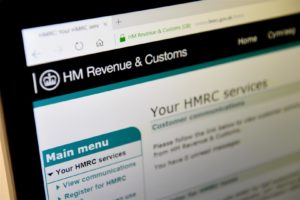04-Mar-2019
HMRC warns of landline scams threatening households
 Households with a landline number should be vigilant of phone calls from fraudsters pretending to be the tax authority, warns HM Revenue and Customs.
Households with a landline number should be vigilant of phone calls from fraudsters pretending to be the tax authority, warns HM Revenue and Customs.
As HMRC has increasingly cracked down on email and SMS phishing, a rising number of criminals are turning to the traditional method of cold-calling publicly available phone numbers to steal money from taxpayers. Often these calls are to landline numbers.
According to Ofcom, nearly 26 million homes have a landline, many of which could be at risk from scams, especially if they are not ex-directory.
Phone scams often target the elderly and vulnerable using HMRC’s brand as it is well known and adds credibility to a fraudster’s call.
HMRC received more than 60,000 reports of phone scams in 6 months up to January 2019. This is an increase of 360% compared to the 6 months before this.
Financial Secretary to the Treasury, Mel Stride MP, said: “We have taken major steps to crackdown on text and email phishing scams leaving fraudsters no choice but to try and con taxpayers over the phone.
“If you receive a suspicious call to your landline from someone purporting to be from HMRC which threatens legal action, to put you in jail, or payment using vouchers: hang up and report it to HMRC who can work to take them off the network.”
Head of Action Fraud, Pauline Smith, said: “Fraudsters will call your landline claiming to be from reputable organisations such as HMRC. Contact like this is designed to convince you to hand over valuable personal details or your money.
“Don’t assume anyone who calls you is who they say they are. If a person calls and asks you to make a payment, log in to an online account or offers you a deal, be cautious and seek advice.”
The tax authority will only ever call you asking for payment on a debt that you are already aware of, either having received a letter about it, or after you’ve told us you owe some tax, for example through a Self Assessment return.
During the last 12 months, HMRC has worked with the phone networks and Ofcom to close nearly 450 lines being used by fraudsters using boiler room tactics to steal money.
If anyone is ever in doubt about who they are speaking to, HMRC advises you end the call and contact the department using one of the numbers or online services available from GOV.UK
If you know someone who has a landline, particularly those who may need protecting such as vulnerable relatives and neighbours, the HMRC’s advice is:
- Recognise the signs – genuine organisations like banks and HMRC will never contact you out of the blue to ask for your PIN, password or bank details
- Stay safe – don’t give out private information, reply to text messages, download attachments or click on links in emails you weren’t expecting
- Take action – forward suspicious emails claiming to be from HMRC and details of suspicious calls to phishing@hmrc.gsi.gov.uk and texts to 60599. Alternatively, contact Action Fraud on 0300 123 2040 or use its online fraud reporting tool, especially if you suffer financial loss
- Check GOV.UK for information on how to avoid and report scams and recognise genuine HMRC contact
- If you think you have received an HMRC-related phishing/bogus email or text message, you can check it against the examples shown in this guide




